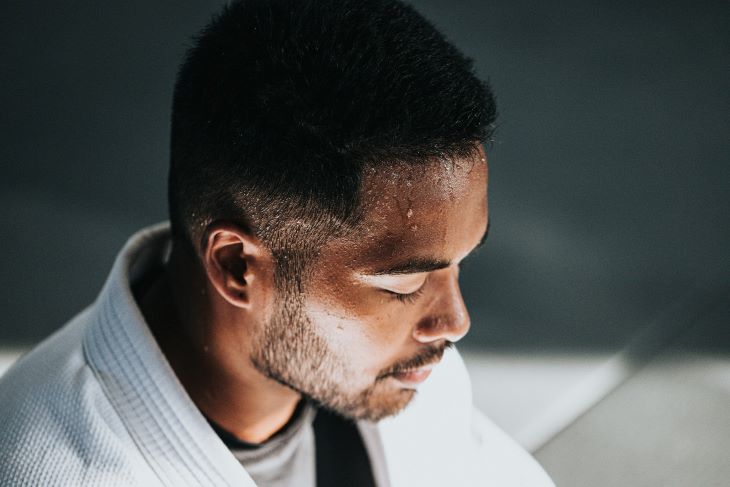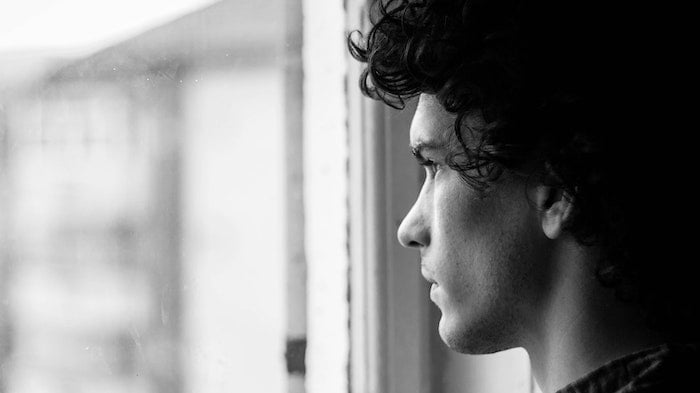8 million people are drinking harmful amounts in the UK.[1] It’s safe to assume that many of these are heavy drinkers. Some people might access recovery support, but thousands go under the radar as functioning drinkers.
Whether you’re getting professional help or not at the moment, if you drink regularly, it’s helpful to know how quitting alcohol affects you during the first year.
When Do You Decide To Stop Drinking?

There comes a time for some when drinking moves from recreational to problematic use. The development of alcohol use disorder proves to be very difficult for people to manage. Addiction is an illness by its very nature and “makeup” isn’t something a person can “just stop“.
Addiction is characterised by six different stages of change including:
- Pre-contemplation where a person is drinking without any acknowledgement of how this has become problematic. It’s a stage of denial that can go on for many years.
- Contemplation is when you recognise that there is an issue and might start thinking about quitting drinking alcohol. This stage is characterised by feelings of ambivalence.
- Preparation for change is when you plan to change and make efforts towards it. This usually includes attending counselling, recovery groups, and planning for a stay at rehab.
- Action is where you enter detox and recovery. Here you become sober and practise skills that empower you to remain so.
- Maintenance is the sustained part of recovery where you’re sober.
- Relapse is when the person begins drinking again. In recovery, this can happen a couple of times before long-term abstinence is achieved.
How Alcohol Affects Your Body

Heavy drinking, especially when it leads to serious long-term alcohol abuse, severely damages both mental and physical health.
It causes severe liver damage and you’re no longer able to eliminate toxins from the body as easily because the liver is putting in so much effort to metabolising alcohol. As well as this, other negative effects of regular and frequent drinking include increased illnesses, irregular heartbeat, and blood pressure.
This is all on top of the addiction to alcohol that has likely developed.
What is Acute Alcohol Withdrawal?

When you develop an unhealthy relationship with alcohol and drink excessively, stopping drinking leads to symptoms of alcohol withdrawal. These can be very distressing especially when a person has drunk heavily and regularly.
The symptoms usually present are:
- Excessive sweating
- Nausea
- Diarrhoea
- Anxiety
- Low mood
When a person has developed alcohol dependence, the symptoms are even more physical and can lead to delirium tremens.
Alcohol Delirium Tremens (DTs)
Delirium tremens occur when someone develops excessive alcohol abuse. The symptoms usually unfold around 48 hours from the last drink and can last about 24 hours. In worst-case scenarios, symptoms can last around 5 days.
On top of the symptoms above, the following occurs:
- A tremor that is usually most visible in the hands
- Paranoia
- Hallucinations
- Seizures
What is Post-Acute Withdrawal (PAWS)?
PAWS is where, after a couple of months of sobriety, you can suddenly experience withdrawal-like symptoms despite not having had a drink recently. It’s mainly characterised by:
- Mood swings
- Anxiety and panic
- Obsessive-compulsive thoughts
The Duration of Alcohol Withdrawal
For a person who has an addiction or who is dependent, alcohol withdrawal symptoms are worst in the first 3 days. In such cases, it’s important to be under medical supervision. This is due to how dangerous the seizures can be. If left alone, seizures can lead to death.
Under the care of a medical team, medication is prescribed to prevent seizures and ease other symptoms of withdrawal.
How Long Do Alcohol Cravings Go On For?
The cravings for alcohol ease the longer you spend sober and it becomes much easier to cope with them as time goes on.
That being said, for a person who has suffered from a severe addiction, it can take several years for cravings to go away completely.
How Long Does It Take To Feel Better Once Recovery Begins?

The recovery process is a journey, which like any, has ups and downs. There’s no denying that the early days can be difficult physically as your body and brain make readjustments to the elimination of alcohol.
After a week or so, physical symptoms begin to ease. There are, however, psychological and emotional effects to thereafter consider.
Alcohol use has often been used to drown or numb feelings and those things that have been hidden can suddenly rise to the surface. This is why accessing counselling or therapy is useful during this time.
Feeling “better” is an individual experience of mental and emotional well-being.
The more involved with alcohol rehabilitation services you are, the easier this will be as you’ll be taught coping mechanisms and be shown how to process triggering moments in healthy ways.
What Happens When You Quit Drinking Alcohol

Below, we outline what happens when you quit drinking alcohol:
1. The first 12-24 Hours
The first 12-24 hours after your last drink, you’ll start to enter withdrawal. Symptoms include anxiety, insomnia, nausea, and stomach pain.
It’s important to drink lots of water and eat healthy food where you can. It’s the point where the detox process begins as your blood sugar starts to rebalance. Getting in essential vitamins and minerals helps the process.
2. The next 24-48 hours
This part of the timeline can be the most physical and difficult, especially for people who have serious drinking habits.
You’ll likely experience high blood pressure, higher temperature, irregular heart rate, sweating, confusion, mood swings, and food cravings for carbohydrates. Delirium tremens (fever, shakes, hallucinations, agitation) may also set in.
At the end of this period, you’ll have faced and got through the most difficult part in terms of your body’s physical reaction. From here, it gets a bit easier.
3. 72 hours/3 days later
If you’re a heavy drinker you might continue to experience severe symptoms during the first three days.
Food cravings are likely to start slowing down at this stage.
4. 5-7 days after your last drink
Around a week into sobriety and detox, you’ll start feeling a bit better physically. This period signals the end of acute withdrawal for most.
If you’re alcohol dependent you might still experience uncomfortable symptoms, which is why for those participating in a medical detox, which includes a prescription (usually for Librium), it can last around ten days.
At this time, your skin is likely to begin to look a little fresher. Depending on what your levels of alcohol intake were, you might start sleeping better as well.
It’s really useful at this point to connect with recovery services if you haven’t already, whether through a private rehab clinic, support meetings through the NHS, or Alcoholics Anonymous.
Doing so increases your chances of remaining sober as you develop skills and a support network to keep you focused.
5. One Month Alcohol-Free
After a month without alcohol, liver fat reduces. This improves its functioning and filters out toxins from the body as it should. You’ll also likely start losing weight. Your skin health continues to improve; any acne, rosacea, and eczema are likely to clear somewhat.
The first 30 days will still mean you experience cravings, so support groups and therapy can play instrumental roles in helping you remain sober.
6. 3 Months of Sobriety
After 3 months, you’ll be more relaxed. There might be moments where you experience sadness and confusion as you work through the process of letting go of your alcohol use.
Feelings of shame and guilt might arise linked to your use, behaviours, and how it’s affected relationships. This improves and is especially made easier with support from others who work in the recovery field and people in recovery themselves.
7. 6 Months of Sobriety
Sobriety becomes much easier and more comfortable after 6 months. As your brain starts to heal, your memory, concentration, and sleep improve. Your self-esteem, clarity, and mental health are more positive.
This stage can bring a false sense of security because of how well things might feel. It’s imperative you keep avoiding triggering places and people as the risk of relapse is still a reality.
At this point on your journey, there’s also a reduced risk of cardiovascular disease and cancer.
8. One Year of Abstinence from Alcohol
One year sober is a huge achievement and many people reaching this point experience deep relief and a sense of self-belief. This is a period of great self-discovery as you develop in self-awareness and create a healthy life filled with meaningful connections and activities.
A year after quitting alcohol you’ll have:
- Reduced cancer risk
- Improved mental, emotional, and physical health
- Improved immune system
- Positive effects on relationships and personal goals
What are the Benefits of Quitting Alcohol?

The benefits of cutting out heavy alcohol use include:
- An improved quality of life
- Reduced cancer risk (alcohol causes 7 types of cancer)
- Improved psychological functioning and an increase in dopamine and serotonin levels meaning better moods, mental processing and reduced mental health issues (including reduced anxiety)
- Improved cognition linked to concentration, memory, decision-making, and sleep
- Healthier emotional processing
- Improved relationships
- The ability to set healthy goals and achieve them by following a clear plan
- Healthier skin
- Weight loss
- Reduced blood pressure, blood cholesterol and risk of heart attack
- Reduced liver damage and liver fat
- Improved sleep quality (including deep sleep and restful sleep)
- Enhanced nutrition as your body can absorb essential nutrients
- Improved immune function
Alcohol Addiction Treatment

Whether you have a moderate or severe alcohol addiction, the best thing for you to do is access rehabilitation services. Throughout the UK, the two main options are those offered through the NHS and private clinics
The NHS supports anyone who self-refers and offers occasional one-to-ones and weekly group sessions.
While it’s a useful service for people with mild addiction issues or those who are in the pre-contemplation and contemplation of change, the best place for people in recovery who want to quit is a private clinic.
Private Rehab Care

At a private clinic, you’ll receive an individualised treatment plan which includes a variety of therapies such as:
- Cognitive behavioural therapy – this is where you learn how thoughts and brain structure influence your behaviour. You’ll learn how to adapt thoughts to control your behaviour and develop healthy habits.
- Motivational interviewing – is the therapy used to explore feelings of ambivalence. You’ll discuss the concerns you have about quitting alcohol and start identifying your deep motivations for recovery.
- Counselling provides the space to develop deep self-awareness. You’ll discuss various aspects of your life and start to make sense of how you’ve got to where you are and how to develop self-compassion.
- 12 Step and SMART groups take place most days during a rehab stay. Connection to others is one of the most helpful tools in breaking down addiction. You’ll take accountability for the addiction and learn skills to manage it.
- Holistic therapies include yoga, art therapy, equine therapy, reiki, and mindfulness meditation.
These therapies help you to develop healthy habits that will become part of your daily life. You’ll learn your triggers, identify thought processes, learn how to emotionally regulate, and also develop useful coping mechanisms to manage cravings.
For people with excessive drinking and frequent drinking habits, you’ll go through a detox process that includes medical treatment. Librium is likely to be prescribed for you to go through withdrawal in the safest way possible.
Rehab clinics provide aftercare services so after your stay you’ll have light support for around a year. Some people might continue with regular online counselling, while others connect to peers through alumni groups.
Want To Talk To Someone For Help?

If you’re ready to enter recovery from alcohol addiction and want to connect to therapeutic and medical professionals, contact the OK Rehab team for advice.
We can answer your questions about long-term sobriety and what it takes to get there. We work with rehab clinics throughout the UK matching people to the most appropriate treatment centre for their needs.
For a no-obligation chat, call us now or drop us a message in the Live Bot chat.





